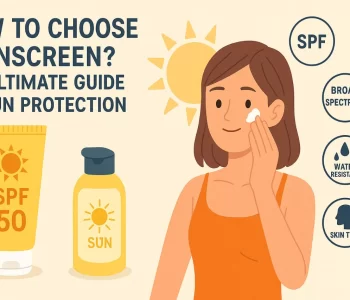 Health
Health
Bad Breath in Children What Causes It and How…
Bad breath is a very common oral issue among people, including kids. It is a very normal scene when a parent wakes his sleepy-faced child with warm, morning cuddles in return of an unexpected whiff of morning breath. While this is okay occasionally, persistent bad breath can indicate potential problems and beyond. In this blog, we will explore why children experience bad breath, in detail. Also, optimal management ways will be covered so you can reach out to a paediatric dentist on time. Continue to read below.
What Is Bad Breath (Halitosis) and Is It Normal?
Halitosis is another name for bad breath, and can happen in both adults and kids. As told, it is entirely normal for children to give off a bout of bad breath, sometimes (especially after a good night’s sleep). This can also happen when a person has eaten pungent foods, such as, onions, garlic, and milk-based items; or has a dry mouth.
But, the real problem arises when bad breath does not go away even after maintaining proper oral hygiene. Here lies the importance of seeing a paediatric dental professional.
Why Children Have Bad Breath?
Here is a list of some of the most common reasons why your child is facing persistent bad breath.
- Poor Oral Care Habits and Dental Cavities: Small kids are still in their learning phase and it is likely that they will not be able to take care of their own teeth. This can eventually cause food particles to get stuck in between teeth, making them a breeding ground for harmful microbes. Over time, plaque accumulates, resulting in dental decay, cavities and bad breath. So, being a parent, you must check whether your child performs regular brushing and flossing – all these habits can prevent bad breath.
- Dry Mouth and Mouth Breathing: Dry mouth is one of the most common causes of bad breath. When children breathe through their mouths and not through noses, there is less saliva production. Saliva is responsible for washing away stuck food bits and bacteria; thus, insufficient saliva production can lead to unpleasant mouth odour. In this context, you must also check whether your child is suffering from stuffy nose, cold or any kind of allergies.
- Existing Illnesses and Oral Infections: If your child frequently suffers from stuffy nose, sore throat or sinus infection, he may experience bad breath. Bacteria feed on the accumulated phlegm produced during such illnesses, producing bad odour. Other infections include tonsillitis (inflammation of the tonsils) and throat infections, etc., in which bacteria acchas a persistent stuffy nose, sore throat, or a sinus infection, bad breath may follow. Bacteria feed on the mucus produced during these illnesses, creating unpleasant odors. Tonsillitis and other throat infections can also contribute to bad breath, as bacteria can collect in the tonsils or throat.
- Sores in the Mouth Sores and Other Related Conditions: Mouth ulcers, accidental cuts, or open sores can attract potentially harmful microbes, leading to bad breath. Apart from these, conditions like acid reflux, etc., can also cause bad odour to come upwards through the foodpipe and reach the mouth.
- Usage of certain Medications: Some medicines can present side effects, such as; dry mouth, abnormal taste, etc., in the mouth. All of these can significantly contribute to bad breath. Consult with a reputed professional who deals with children dentistry – he can help address your child’s problem in advance and manage it effectively.
Getting Rid of Bad Breath in Kids: Steps to Follow
Bad breath or halitosis is treatable, if intervened on time. By consistently incorporating a few positive lifestyle changes, you can help your child maintain freshness of breath and healthy teeth. Here are some valuable tips that you can follow:
- Brush, Floss, and Rinse Regularly
The foundation of fresh breath starts with proper oral hygiene. Being a parent, you must encourage your child to:
- Brush their teeth twice a day (after waking up and before going to bed) for at least two minutes. Using a kid-friendly toothbrush and fluoride toothpaste can give the best results.
- Floss after every main meal. This eliminates food particles and plaque remnants stuck in between their teeth.
- Clean their tongue with a tongue-cleaner as the tongue is a breeding ground for bacteria and decayed food particles.
- Rinse their mouths with an antibacterial mouthwash.
For smaller kids who cannot maintain oral hygiene on their own, supervise them in the process. Such healthy practices can also foster a deeper parent-child bond. And most importantly, your children can carry these good habits in the long run.
- Stay Hydrated
Motivate your child to sip water throughout the day. Maintaining hydration increases saliva production, aiding in the removal of bacteria and food debris. Water is the best drink as compared to sugary or fizzy beverages, as they lead to tooth decay and unpleasant breath.
- Provide Snacks That Promote Fresh Breath
Fresh, seasonal fruits and vegetables such as apples, carrots, and celery can help clean teeth and refresh breath naturally. These snacks stimulate saliva flow and assist in removing food debris.
- Address Underlying Ailments
If your child’s foul breath is caused by a congested nose or sinus infection, concentrate on addressing the root issue. Motivate them to frequently clear their nose and maintain good hydration. Saline sprays or humidifiers available without a prescription may also alleviate nasal congestion.
- Visit the Dental Clinic Regularly
Routine dental check-ups are crucial for identifying and treating problems such as plaque accumulation, cavities, and gum issues. A paediatric dentist can offer more advice for enhancing your child’s oral care and address any worries you might have.
When Is It Time to Be Serious About Halitosis?
Although most cases of bad breath in children are harmless, there may be times when visiting a paediatric dentist becomes crucial. Chronic halitosis that does not get better with proper dental care might indicate:
- Dental cavities or periodontal disease
- Tonsil stones (tiny, smelly clumps that develop in the tonsils)
- Long-term sinus infections
- Digestive problems such as acid reflux
If your child’s breath has a notably strange odour (like fruity or sweet, which may suggest diabetes) or comes with other symptoms, arrange a visit with a paediatric dentist immediately.
Conclusion
Several private clinics offer cost-effective children dentistry in London. These are helpful in guiding your child towards better oral health. From dental cleaning sessions to treating cavities, everything can be obtained here. Thus, if you are a parent worried about your child’s persistent bad breath, book an immediate consultation with any of your locally available dental clinics.






